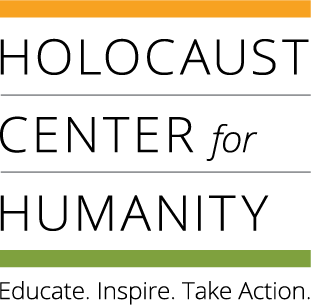King5 News | April 15, 2018 | By Ted Land
Soon there will be no one to explain first-hand what they saw, heard, and felt during the Holocaust. A generation of survivors, now in their 90s, is disappearing.
Henry Friedman: "My enemy today is time."
Henry Friedman can still describe living in a Polish ghetto, then hiding in a barn to avoid the death camps and slowly starving before liberation.
"It took us many years for Holocaust survivors to be able to speak, to get over the pain that was inside of us."
Friedman and others are still able to gather at Seattle's Holocaust Center for Humanity to speak about what they witnessed. But who will tell these stories when the survivors are gone?
Jack Schaloum: "I felt there was a heavy responsibility that needed to be done."
Jack Schaloum is among a younger generation who now has the obligation of explaining the consequences of hate.
Jack Schaloum: "It was something that I needed to do."
Schaloum visits schools and talks on behalf of his late mother, Magda Schlaoum.
Magda Schaloum, in video testimony: "They took my brother away, and my mother was devastated."
Jack Schlaoum: "It haunted her until the day she passed."
Schaloum and Ingrid Steppic are what are call ed Legacy Speakers, keepers of their families stories, who picked up where their families left off.
Ingrid Steppic: "I didn't do this years ago. I was busy raising my own family. But later I realized if we don't tell the stories, they get lost."
They may not have the same painful perspective...
Henry Friedman: "Hatred is a virus."
But the message endures.
Henry Friedman: "The most important thing is not to hate."
